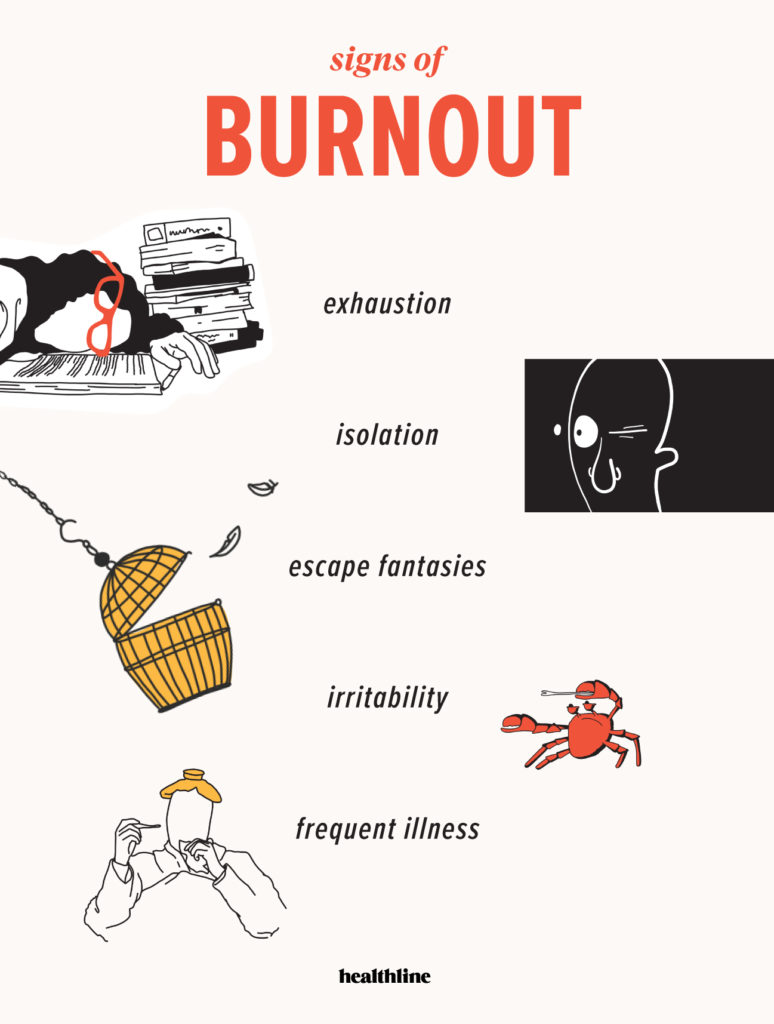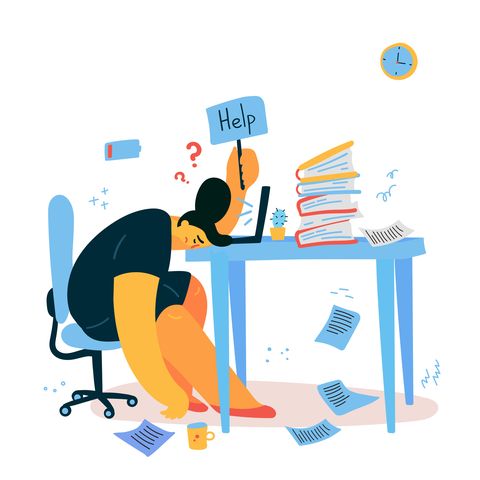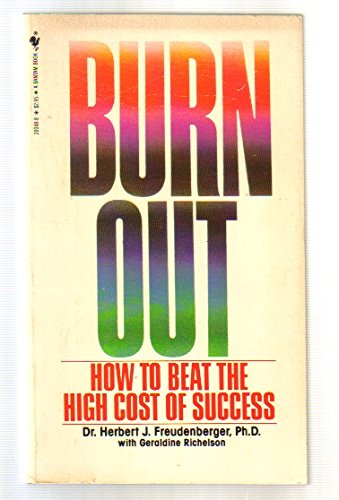Before explaining how to escape burnout, we should talk about what burnout is. Consider the following situation:
So you’ve persevered with your studies, landed your dream job, and worked with burning passion to get to where you are today. What could go wrong, right?
Then, one day everything feels exhausting, things appear repetitive, and you just seem to have lost all your excitement.
Has the above happened to you? If it has, you’re in good company.
Unless you are personally going through some tough times in your life, chances are, you are experiencing burnout.
If you are someone or if you know someone who might be experiencing burnout, there are a couple of things you should be aware of.
First off, understand that burnout can be managed and it is relatively easy to spot. It isn’t fun, but it’s something millions of people go through at different stages of life.
In this article, we’ll talk a bit about what burnout is and how you can escape burnout. Hopefully, by the end, you’ll be ready to start tackling your burnout problem head-on!
What Exactly is Burn Out?
First coined in 1974 by Herbert Freudenberger, burnout is a psychological term that pertains to long-term exhaustion and declining interest in work. It is a challenging pit where you are stripped of all your self-motivation and drive. It is a terrible state where work is nothing but that – work.
The good news, however, is that burnout is not an inescapable void. It is something avoidable and solvable. As with every other problem, the solution for burnout starts with recognizing the signs. The earlier you spot them and start trying to escape burnout the better.
In his book titled Burnout: The High Cost of Achievement, Freudenberger defines burnout as “the extinction of motivation or incentive, especially where one’s devotion to a cause or relationship fails to produce the desired results.” Simply put, burnout is when you, “just don’t feel it anymore.”
Just recently in 2019, the World Health Organization (WHO) has recognized burnout as a medical condition. The WHO has moved burnout alongside other medical conditions under its International Classification of Diseases (ICD). In the simplest terms, it is a physical, mental, psychological, and emotional state brought about by chronic stress.
|
If you have been feeling incapable at the workplace or things are feeling monotonous and helpless, you are experiencing the first signs of burn out. However, burn out is not only due to external work-related stressors – personality traits such as perfectionism also play a part.
Stress vs. Burn Out
Everybody gets stressed every once in a while. While burnout and stress have a handful of similar symptoms, there are a few that set them apart. Here’s how exactly you can tell stress from burn out.
For starters, stress is characterized by over-engagement. People who are stressed usually got it from being overly involved in a business project or a work-related task. Meanwhile, burnt-out people tend to suffer from the exact opposite of over-engagement-disengagement.
Moreover, stress is associated with the loss of energy. On the other hand, burn out is related to the loss of motivation and hope. If someone is experiencing the consuming feeling of having no purpose or nothing to look forward to, that is a saddening case of burnout.
Additionally, in the long run, stress can lead to anxiety disorders while burn out matures to more serious stages of detachment and even severe depression.

At the absolute worst end of the spectrum, being stressed on a regular basis might kill you prematurely while being burnt out for a long time might make life feel not worth living. Stress is more on the physical side of things while burnout is more on the emotional side of things.
A noteworthy way of differentiating stress and burnout is knowing that stress is short-term, it can be alleviated by a trip to the spa or a weekend karaoke session with your friends. In contrast to this, burn out takes place in a longer time frame—deafening karaoke just won’t do the trick.
The Roots of Burn Out

Despite being commonplace in the work setting, burnout can also affect students, athletes, entrepreneurs, and, though less likely, even kids. In other words, nobody is safe from burning out, and everyone should watch out for it.
More often than not, burnout occurs when someone is not in full control of their work. A burnout might happen to an athlete under chronic training stress for years, an employee working a monotonous job for ages or an entrepreneur who has been turned down a thousand times.
Overwhelming and non-ending responsibilities can also be the cause of burn out. This is where parents and non-professional caregivers are at great risk of burnout. The idea that no matter what you do, responsibilities just won’t lighten up is a mental prison that will surely burn you out.
Dysfunctional workplace dynamics can also be the cause of burnout. If you feel powerless in a work-setting or you are having trouble dealing with a work bully or an unjust boss, you might be at risk of burnout.
Recognizing the Signs of Burnout

When one is experiencing burnout, they feel an extreme sense of mental tiredness; their brain just won’t shut up. They cultivate an air of cynicism, and they tend to question the meaning of the things they do, which, they end up not finding ample answers for.
Moreover, thoughts like, “Nothing I do will make anything significantly better,” “I do this for 8 hours every single day, yet I do not feel engaged,” and “My work does not satisfy me, I am too tired” are some of the echoing voices in a burnt-out person’s head.
The signs of burnout can come in countless forms. Some symptoms are emotional while others are physical and psychological. Though it varies from person to person, there are a couple of common denominators that draw the line between someone who’s not burnt out and someone who is. Here are a few:
- Feeling alienated
People who are burnt out usually start to see their jobs as increasingly stressful during the set-off. They are more likely to feel distant from the people they work with and the job they perform. The feeling of numbness and loss of autonomy to one’s action are also signs to watch out for. - Deteriorating physical performance
Similar to most medical conditions, burn out also takes a toll on physical well-being. Some physical symptoms of burnout include frequent headaches, stomachaches, intestinal issues, insomnia, and fatigue. In fact, according to the American Psychological Association, burnouts increase the risk of cardiovascular diseases.
If you are feeling unusually tired and a good night’s sleep just doesn’t work, you should be on the lookout for you might be on the onset of burnout. - Declining emotional health
In terms of emotional well-being, burnout has strikingly similar symptoms as depression. These symptoms include changes in appetite and eating behavior. However, unlike depression, there are no medications prescribed to people who are experiencing burnout. - Experiencing a decline in cognitive abilities
If for some reason you feel that you are constantly tired and you are losing a few IQ points, you might be on the verge of burnout, or worse, you might be experiencing it already. Burnout affects your ability to focus and pay attention.
Ultimately, this leads to a decline in work-related performance. Moreover, a person who is burnt out has a higher tendency to be forgetful on a regular basis.
Spotting burnout early on is highly advisable, since you can’t escape burnout until you recognize it. If you think you are on the brink of a more serious burnout, take a breather already; do not let yourself go down the rabbit hole any further! Prevention is always better than cure.
How to Escape Burnout
Being burnt out does not mean the end of the world for you – there are things you can do to escape burnout and get back to being inspired and hustling. If you are quite positive that you are experiencing burnout, here are some of the things you can do to maneuver a way out:
- Do not fear slowing down
Sometimes the fear of slowing down is what keeps hustlers hustling. The idea that things will drastically decline is perhaps why you are brushing your teeth in the shower and making business calls while driving. If this is you on a daily basis, stop at once.
Your first ticket to escape burnout is accepting that nothing bad will happen if you take a breather. Yes, you might not be as efficient with work as you want, but that is okay, the sun will still rise and set, and you’ll still be able to go through life just fine.
If there’s work that absolutely HAS to get done, consider hiring a Virtual Assistant to help out. - Do the math
If you are having a hard time slowing down, as counterintuitive as it sounds, doing the math might be a big help. Do this by strategically looking at your work and personal life on a larger scale.
Start by asking questions such as, “Am I biting off more than I can chew?” It is extremely important to be as honest with yourself as you can. If you think you can get by with your monthly bills without that extra overtime, you should definitely consider giving it up for some time out.
Also, do the same with your time. Lay a clean schedule and pile everything out and see firsthand where your time goes. It is highly advisable to free up as much time as you can for yourself.
Free time can be used for things such as recreational activities, a personal side project, catching up on your favorite TV show, or having a weekend trip. Doing the math in this sense is doing an inventory with your time and money—it is more like budgeting your life. - Share it with someone
Just to be clear, this does not mean you should share your “burnout” with a friend or a relative. Sharing it with someone can be just by talking about it. As boring as it sounds, it is extremely helpful if you are not battling burnout alone.
Talk about how you are feeling with a good friend, your mom, or a therapist. Burnout is not contagious, plus, the people in your life might have a couple of tricks up their sleeve to ease things up for you.
You can also share it with your boss, be transparent with what you are feeling. Who knows, if your honesty is taken positively, you might score an extra day off. - Do not worry too much
Regardless if you are an employee or you are self-employed, work is work. Unless you are in a tight spot business-wise, you should not stress about work as if your life depends on it. Chances are, calling a sick day or two won’t have that much of an effect on your work but a significant effect on your well-being.
Not caring too much about work is best practiced by sticking to the old-school rule of segregating work from personal life. Personal problems are not to be brought in the workplace as work is not to be brought home. - Switch up your routine
As mentioned, burnout is characterized by chronic mental tiredness. It is also the feeling of monotonous and declining self-motivation. One way that might help with this is changing things up a bit.
Start small, switch the morning quick oats with some toast, eggs, and fruits. Eating a diet comprised of healthier foods is scientifically proven to improve mood and general well-being.
Ditch the car and bike to work if you can. Shop a few wardrobe essentials. Give your workspace a little makeover. Order something different for lunch. There are hundreds of other things you can do to make something feel “new” in the workplace, which helps to escape burnout.
These are just some of the things you can do to escape burnout. While there are absolutely more extreme measures such as quitting your job, going back to college, or switching careers, these are the more realistic approaches.

Recommended Reading
How to Hire and Train Virtual Assistants From The Philippines
Are you ready to grow your business, but have no idea how to hire a Virtual Assistant? This guide explains the complete process step by step.
25 Cool And Memorable Ideas for Bar and Bat Mitzvah Gifts
Looking for the best, most appropriate Bar Mitzvah gifts possible for a Jewish boy? Look no further! Here are 25 great ideas to choose from.
Onlinejobs.ph Reviews: Cheap Virtual Assistants from the Philippines
Trying to hire a Virtual Assistant? Try Onlinejobs.ph! Read on for the most comprehensive, up to date Onlinejobs.ph review you can find.
The 4 Hour Work Week Summary: Lifehack or Gimmick?
In the 4 Hour Work Week, Tim Ferris goes over the process of living your life for YOU, instead of living your life to work.


